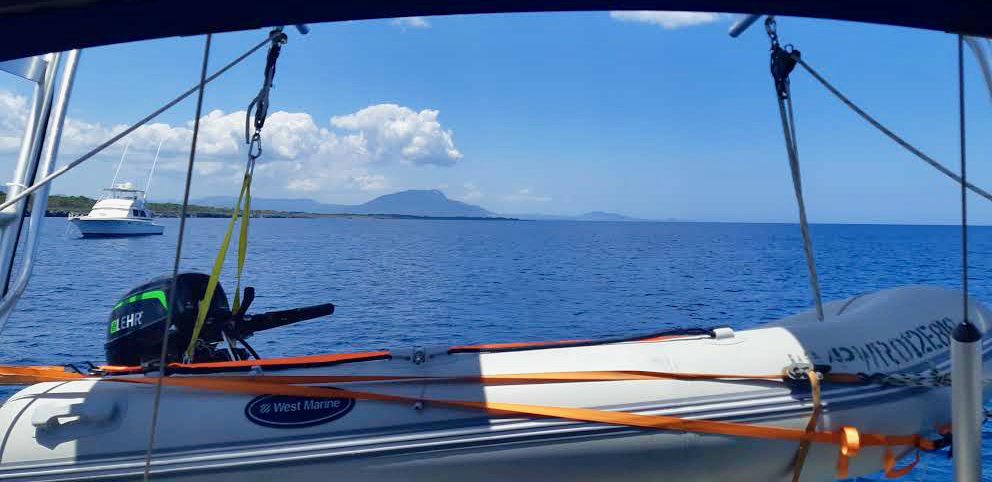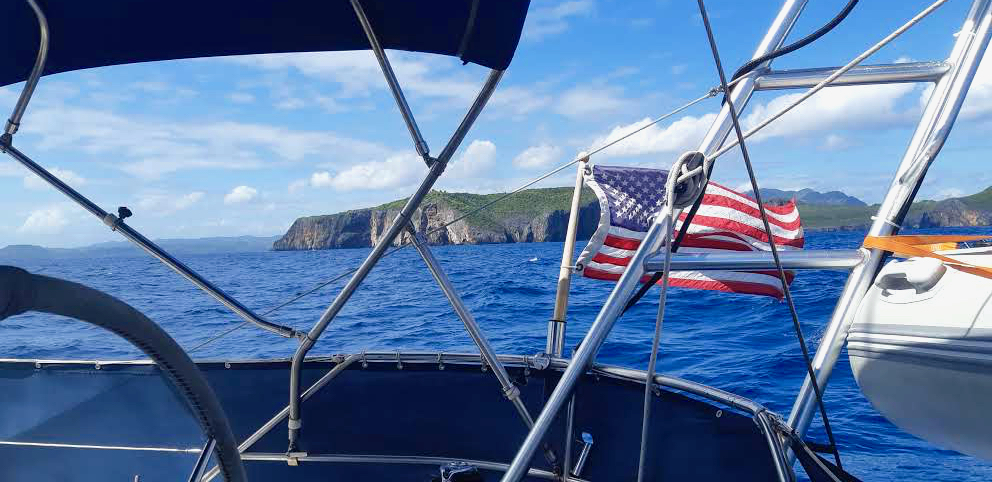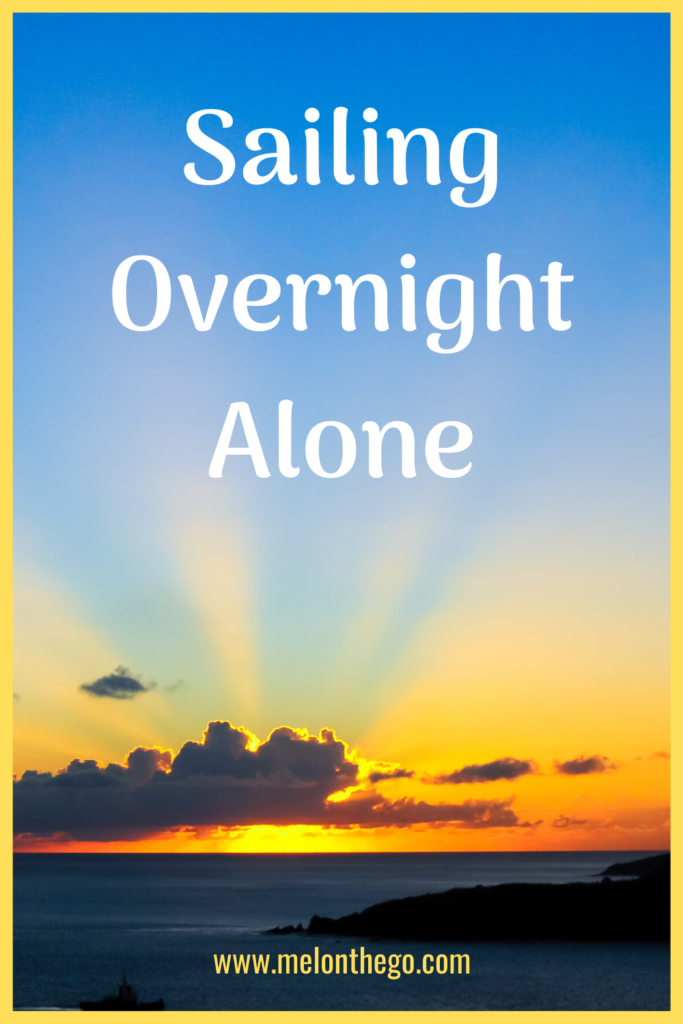Part of the reason we hired Jeff, the captain who came with us from Provo to Luperón, was that we were nervous about our first night sail. While that passage was not easy, and a few things went wrong, we made it fine. Next up: getting to the south of the D.R, by sailing overnight alone.
Long Passage For Two Sailing Overnight
The next passage, from Luperon to Samaná, was almost the same distance. And we knew we had to do it with just the two of us. Sailing at night is challenging, especially when the auto pilot isn’t working, which ours wasn’t at the time. Someone has to be at the wheel the entire time. So shift work is required.
As Melinda wrote earlier, Luperon is a social town with many cruisers. We quickly made a few friends who were going in our direction, and also looking for the right weather window to move. We got together with those other cruisers a few times to look at the forecasts and decided on a Wednesday morning departure that would get us to Samaná the following afternoon with a small stop along the way. These sailors were new to us, but we shared a common goal of getting to the next upwind anchorage or marina.
The morning came around and we all lifted anchor around 6am and set sail and motor eastward to our rest stop of Sosúa. We would wait out the strong daytime winds there and move forward in the early evening when winds were lighter and forecast to shift southerly. Our little flotilla was made up of six boats: Sava, Little Whale, Destiny 42, 5 knots, Belle Mar, and Salinas.
There’s a Plan?
At Sosúa things did not go to plan. Two boats decided to continue in the strong headwinds while the rest of us found some mooring balls and hooked up. We found a nice one and quickly made lunch and took a nap, knowing full well we had a long night ahead. The winds were forecast to change around sunset at 7pm, so that’s when we wanted to round the point and head on. Unfortunately, our mooring ball, and most of the others, belonged to local working boats and around 5 pm they came to claim them and move us on. After we were ousted we decided to move on, despite the strong headwinds, and make some progress eastward. A couple other boats were also being evicted so three of us left together to face the headwinds.

Rounding the Sosúa point put us into some heavy winds on our nose. This was too much for one of the other boats, but we decided to continue and bash against the wind, as did our friends aboard Little Whale. Our other companion returned to Sosúa Harbor to wait. We bashed against 20 knot headwinds tacking close to shore, believing the forecast that the wind would soften and shift south, allowing us to move without the six foot swells and constant smashing into waves. As the sun set and it got dark on our first unaccompanied night sail, the wind continued. Eventually, close to midnight, the wind finally slowly declined, but not before about seven upwind tacks along the coastline.
Support System
As we struggled with the sails, the constant steering, tacking every hour or so, what kept us going was the infrequent, but comforting radio calls from our buddy boats.
Sava, Sava, this is Little Whale. How are you doing? You guys are doing great. Keep it up.
Around 11 pm, we were rounding the next big point heading toward a long bay crossing and we heard the calls of our earlier companions who had left Sosúa before us. They had been bashed by even stronger winds than we suffered and found some shelter in an anchorage. Rested and with abating winds (albeit not shifting south) they pulled anchor and joined us on the long night crossing to the eastern coast of the Dominican Republic.
Driving in the Dark
As the night settled in, Melinda and I started our night shifts, trying to get some sleep while the other steered. The winds never shifted south, but subsided enough that we could maintain a tight tack with the motor running and make ground forward. The stars were out, and it actually became peaceful for a while, despite some large waves which would intermittently smash the hull and shake things up.
Morning broke on Melinda’s shift and we could start to see the first point we needed to round. At this point we were starting to struggle with our sleep and not eating properly. I think I managed a few hours of sleep. As we progressed towards our goal, it was always comforting to hear the radio calls of our group of boats checking in with each other. Little Whale rounded the last point around 11am to turn south and let us know that the scenery on the shorelines was beautiful, the winds were good, and we only had a few hours to go.

Making Friends
The end of the journey was easy, but what has been the most joyful part of the experience, once we arrived in Samaná, is really getting to know our traveling and boating companions. From radio friends to real friends. At the time, we didn’t really know much about the group we were hearing on the radio during the journey, but they were there along the way. One of the boats, we found out later, had a very sick captain, and his wife was on watch almost the entire passage.
I can’t say our first sailing overnight alone experience was easy. It wasn’t. It was a long 22 hour slog. But we had great people who lifted us up and they have become good friends here in Samaná.
After our visit to the National Park, Los Haitises, we’re going to jump to Puerto Rico through the Mona passage, one of the toughest passages and another overnight. We have company, and maybe auto pilot. Stay tuned for how that goes…




I am now officially back to being very worried about the two of you. What an incredible adventure. ????????. Happy Easter
Great work…the lack of sleep and pounding must be hard!
Good post…
AUTOPILOT
It makes it easier to relax and enjoy…we hope!!????